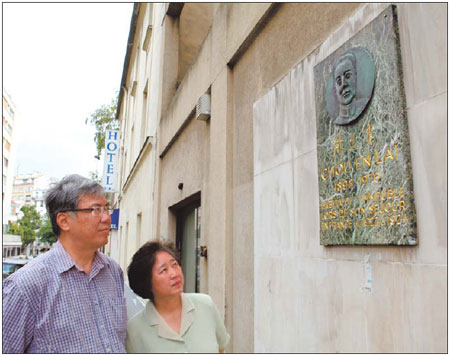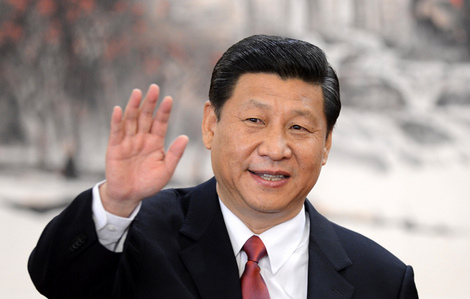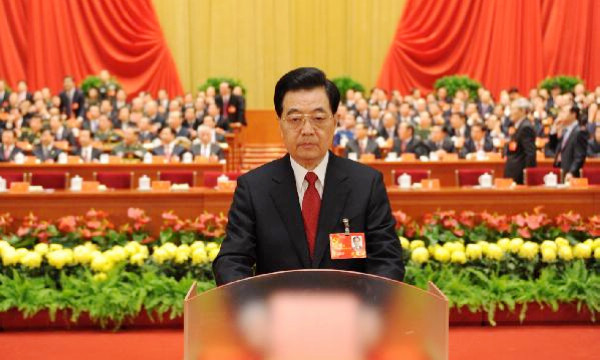Small Paris hotel hosted young leaders
By Fu Jing (China Daily)
Updated: 2011-06-30 15:20
Editor's note: As citizens celebrate the 90th anniversary of the Communist Party of China (CPC), which falls on July 1, a China Daily reporter visits the hotel in Paris where in the 1920s Deng Xiaoping, architect of China's reform and opening-up drive, and former Chinese premier Zhou Enlai lived and worked. As well, we report on the present condition of the venue for the First National Congress of the CPC in Shanghai in 1921.
|
 Li Jianle and his wife, the Chinese-French owners of Neptune Hotel in Paris, look at the statue of former Chinese premier Zhou Enlai on Wednesday. Zhou spent two years in the hotel in the 1920s. [Fu Jing / China Daily] |
PARIS - In April 1974, Deng Xiaoping (1904-1997) was driven around the transit circle of the Place d'Italie in this city to find the location of his friendship in the 1920s with his comrades, including Zhou Enlai (1898-1976).
Deng failed to find the meeting point of the European branch of the Communist Party of China (CPC), which was in a hotel only 150 meters from the transit center.
Deng had visited Paris after a UN conference in New York in 1974. Before leaving for Beijing he bought about 200 pieces of French bread for Zhou and other leaders as reminders of their friendship in those early days.
Zhou spent at least two years in that hotel and Deng, then working and studying outside Paris, frequently visited, usually sleeping on the floor in Zhou's small room.
"In the 1920s the roads had been paved with cobblestones but when Deng visited they had been newly tarred, so he could not find his way to the hotel," Chinese-French resident Li Jianle, who owns the hotel now, explained to China Daily.
In fact, the hotel, named the Neptune on Godefroy Street, has been in the media spotlight lately as the CPC prepares to mark its 90th anniversary on July 1.
The four-story hotel is about 150 years old and half of it has fallen into disrepair. However the structure remains intact and features a bronze statue of the head of former Chinese premier Zhou Enlai that is framed into the wall facing the narrow street.
With the help of the renowned Chinese-British writer Han Suying, the stature was made in 1979 by Paul Belmondo, a noted French sculptor, who was 80 years old at the time.
Jean-Paul Belmondo, the film star and Paul Belmondo's son, said later: "Father said to us many times, 'Zhou Enlai and I are of the same age. It was a great honor in my life to make a sculpture of such a great man.'"
Deng Xiaoping wrote three characters "Zhou Enlai" in calligraphy below the sculpture.
Zhou lived from 1922 to 1924 in the hotel room while on a study-work program with hundreds of Chinese youths. And this was where Deng, the architect of China's reform and opening-up drive, and Zhou formed their lifelong friendship.
"We have taken the responsibility to protect the historic building and introduce it to both Chinese and foreign guests," said the owner Li, who traveled to Paris in the 1980s for study, and later settled there.
In the summer of 1920, Deng Xiaoping, aged 16, boarded a ship for France and in October arrived in Marseilles. It was shortly after the end of World War I, and Europe had not yet recovered from the devastation.
In France finding a job was especially difficult because of the depressed economy. Even those Chinese students who were fortunate enough to find jobs in big factories were paid only half the wages of French workers. Worse still, at this time Deng Xiaoping's family could no longer afford to send him money, so he had to scrape along on his own. His high hopes of studying abroad were crushed by grim reality.
Two months after his arrival he began to do odd jobs at the Le Creusot Iron and Steel plant in central France. Later he worked as a fitter in the Renault factory in the Paris suburb of Billancourt, as a fireman on a steam train and as a kitchen helper in restaurants. He barely earned enough to survive. He attended middle schools briefly in Bayeux and Chatillon.
Although life was difficult, new ideas were taking a strong hold of the young man. Thanks to the October Revolution in Russia in 1917, the workers' movement in France was gaining momentum, and Marxism and other schools of socialist thought were winning more adherents.
Under the influence of his seniors, Zhao Shiyan, Zhou Enlai and others, Deng began to study Marxism and do political propaganda work. During the five years he spent in France, from age 16 to 21, Deng Xiaoping was transformed from a patriotic youth into a Marxist. It was the beginning of his revolutionary career.
The Chinese Socialist Youth League in Europe published a mimeographed magazine, the Red Light, designed to help the Chinese comrades in France, Belgium and Germany to study theory.
Historical records show that Deng, although living in other cities in France, frequently visited Zhou and even cut stencils and did mimeographing for the magazine in Zhou's room.
Robert Dezmas, a senior scientist at the French National Center for Scientific Research, has been staying at the hotel for at least two or three days a week for the past eight years after commuting by train from his home in Grenoble. He knew of Zhou's sculpture but not that he had stayed at the hotel for two years.
"It's a historic building and they (Zhou and his comrades) have brought tremendous changes to China," said Dezmas, who is famous for his research into glaciers.
"I think their life in those early days in Paris must have had a profound impact on their outlook and strategies to govern such a big country."
Li said business at the hotel is good but most of the guests are foreigners. "I think fewer than 5 percent of the guests are Chinese," he said.
These days, about 4,000 Chinese and French people travel between the two countries every day and more than 40,000 study in the other country.
"I hope more Chinese can come and visit the hotel and the bronze sculpture can reveal some of the history to them," said Li.
Li has another wish. He is trying to find more historic photographs and records to develop his hotel into an exhibition center about the early life of China's leaders.
"I am trying to do this to make sure the history is handed down to younger generations," he said.
China Daily

Top News
Xi emphasizes adherence to CPC Congress spirit
Top legislator urges implementation of congress spirit
Moderately prosperous China brings chances to world
Video







